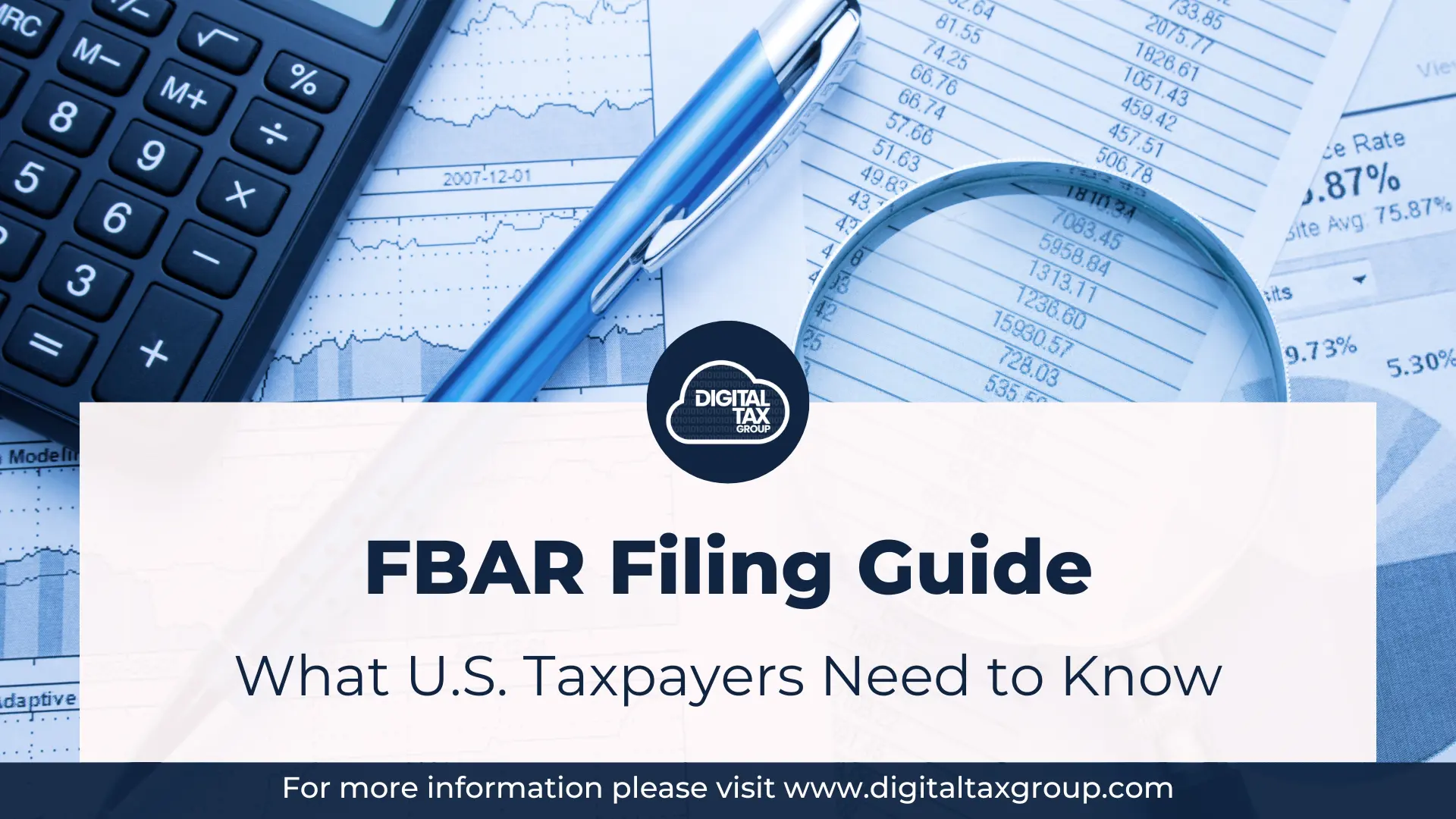At Digital Tax Group, PLLC, we understand that navigating the complexities of tax reporting can be daunting. One crucial area is the FBAR filing process, which involves the Foreign Bank Account Report (FBAR). This guide clarifies FBAR requirements, who needs to file, and how our firm can assist you in ensuring compliance.

What is an FBAR?
The Foreign Bank Account Report (FBAR) is a form required by the U.S. Department of the Treasury. It aims to combat tax evasion by reporting foreign financial accounts held by U.S. taxpayers. If you have financial interests in or signature authority over one or more foreign financial accounts, you may need to file an FBAR.
Who Needs to File an FBAR?
U.S. citizens, residents, and entities must file an FBAR if:
- The aggregate value of foreign accounts exceeds $10,000 at any point during the calendar year.
- Accounts include bank accounts, investment accounts, and other foreign financial accounts.

FBAR Filing Requirements
FBARs are filed electronically through the Financial Crimes Enforcement Network (FinCEN) using the BSA E-Filing System. The filing deadline is the same as the regular tax deadline, April 15, with an extension available until October 15.
Penalties for Non-Compliance
Failing to file an FBAR can result in severe penalties, including:
- Civil Penalties: Up to $10,000 per violation, or more if willful. If a taxpayer willfully fails to file their FBAR, the penalty is $100,000 or 50% of the account’s maximum value at the time of the violation, whichever is higher, for each year a person did not file a required FBAR.
- Criminal Penalties: Significant fines and possible imprisonment.
How Digital Tax Group Can Help
At Digital Tax Group, PLLC, we offer expert services to help you with:
- FBAR Preparation and Filing: Accurate completion and timely submission.
- Consultation: Expert advice on reporting requirements.
- Recordkeeping: Best practices for maintaining records of foreign accounts.
Tips for Compliance
To stay compliant, consider these tips:
- Maintain Accurate Records: Keep detailed records of all foreign accounts, especially the values of those accounts throughout the year.
- Review Thresholds Regularly: Monitor your accounts to stay aware of any changes.
- Avoid Common Pitfalls: Report all relevant accounts and understand requirements for joint accounts. You are still responsible for accounts for which you only have signing authority.

Navigating FBAR requirements can be complex. Contact Digital Tax Group, PLLC today to learn more about our FBAR services and how we can assist you with international financial reporting needs.
For more information regarding FBAR’s, click here to check out the IRS’s official FBAR guidelines!



